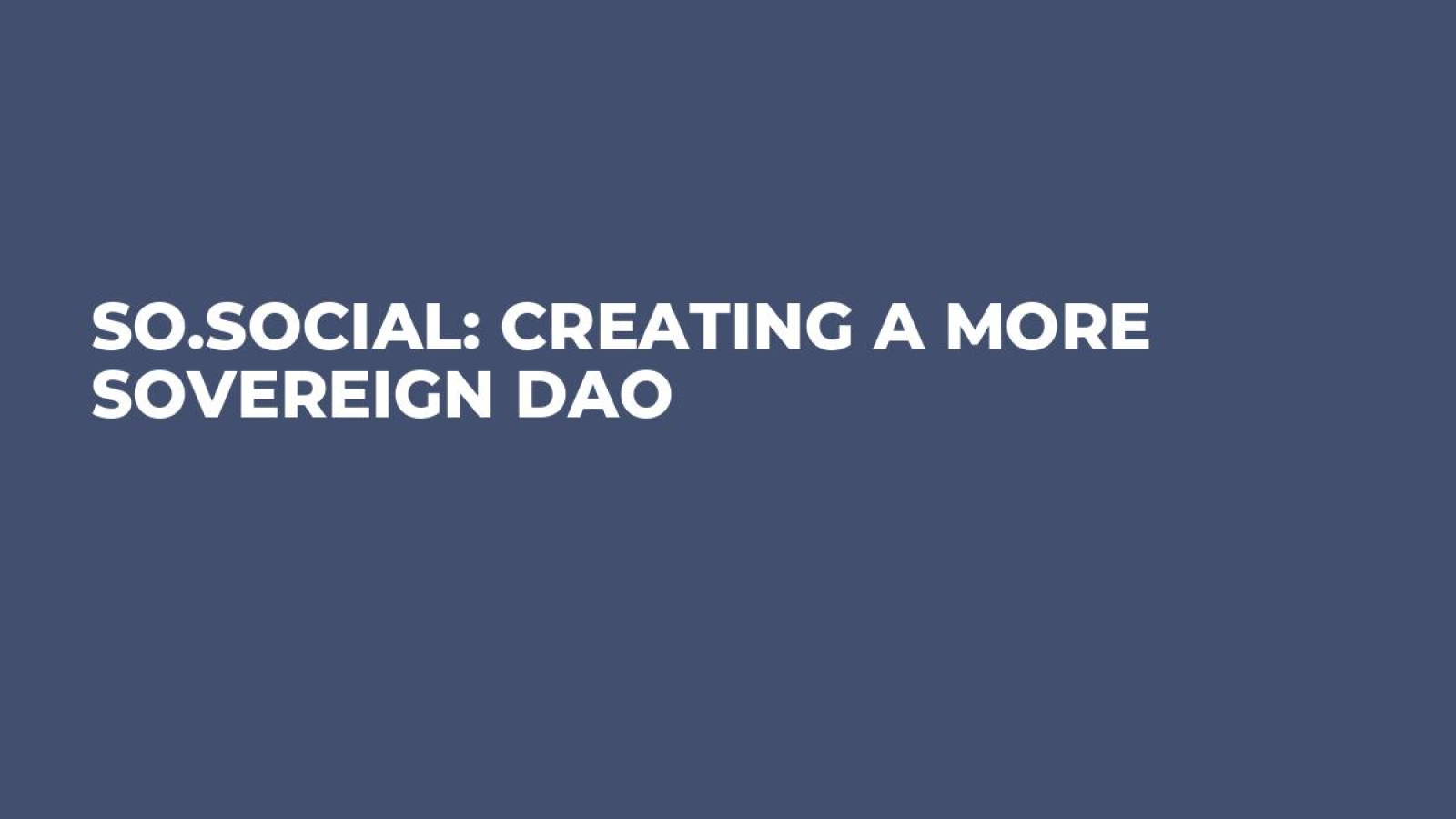
The release of So.Social's inventive new social protocols heralds an era of more achievable DAO governance for organizations focused on social connections.
Traditional DAO mechanisms remain idealistic and impractical for real-world social organizations; they are costly to implement, limited in function, inefficient, and inflexible. A more sovereign DAO is not only based on smart contracts but augmented by AI agents, human input, and DApps for added intelligence, flexibility, and efficiency.
What the So.Social Protocols Address
User Privacy: Users often worry about the privacy of their data, especially in regards to how platforms use their personal information for advertising and data sales. Government regulations tend to support user concerns over platform revenue.
Unfair Revenue Distribution: Users feel that platforms do not fairly distribute the value they create through their social interactions. Larger platforms might take a significant portion of earned income, leaving creators with less.
Content Censorship: Users want free speech but face strict content moderation policies from the platforms they use. These policies can stifle discussions and limit free expression.
Lack of Trust in Governance: Users must inherently trust social platforms for financial transactions without any guarantee of transparency. For instance, when making charitable donations, users must trust the platform and recipient without further verification options.
Overreliance on Smart Contracts: Smart contracts are the central mechanism of any DAO, but the social sphere is complex and nuanced and cannot be fully automated. Smart contracts must allow for other mechanisms to achieve full governance flexibility.
How So.Social Solves These Issues
Sovereign DAO: In a traditional DAO, rules are enforced solely by smart contracts, but this approach is limited and cannot handle complex work. So.Social augments traditional DAOs with AI Agents, human touch, and DApp controls.
- AI Agents: Generative AI can interact with users in natural language and make decisions based on comprehensive data analysis, minimizing human biases. AI Agents are always online and can manage with efficiency and accuracy.
- Human Oversight: We introduce mechanisms that allow human intervention, particularly for decisions that require ethical considerations, complex judgments, or are outside an AI's decision-making capacity, including allowances for emergency human intervention or a select panel to have the ability to override or revise other measures.
- DApp Controls: We develop decentralized applications (DApps) that serve specific functions around social scenarios, member engagement, organization management, and communication. These DApps are governed by the rules set forth by the DAO but offer flexibility in operation.
Social Infrastructure Layer: So.Social decentralizes monolithic social platforms through the introduction of a new, modular social infrastructure layer that transforms social platforms into social scenario providers.
Social Consensus Mechanisms: Groups, communities, or societies have different ways of making collective decisions, including through voting, discussions, or negotiations. Social consensus mechanisms play a crucial role in ensuring that the decisions made reflect the will and interests of the majority while considering the perspectives and rights of minorities and are key to any organization.
"So.Social is at the forefront of a new paradigm of social interactions and our social protocols empower users to shape each social interaction to their wishes, while at the same time being assured of transparency, fairness, and trust. We believe in a future that solves the social needs of all users," explained Ian, So.Social Co-founder.
So.Social is pleased to invite all builders and users to come together and create a new social ecosystem. Learn more about So.Social at https://so.social/.
Disclaimer: This is sponsored content. The information on this page is not endorsed or supported by U.Today, and U.Today is not responsible or liable for any inaccuracies, poor quality, advertising, products or other materials found within the publication. Readers should do their own research before taking any actions related to the company. U.Today is not responsible, directly or indirectly, for any damage or loss caused or alleged to be caused by or in connection with the use of or reliance on any content, goods or services mentioned in the article.
 Arman Shirinyan
Arman Shirinyan Caroline Amosun
Caroline Amosun Dan Burgin
Dan Burgin Alex Dovbnya
Alex Dovbnya